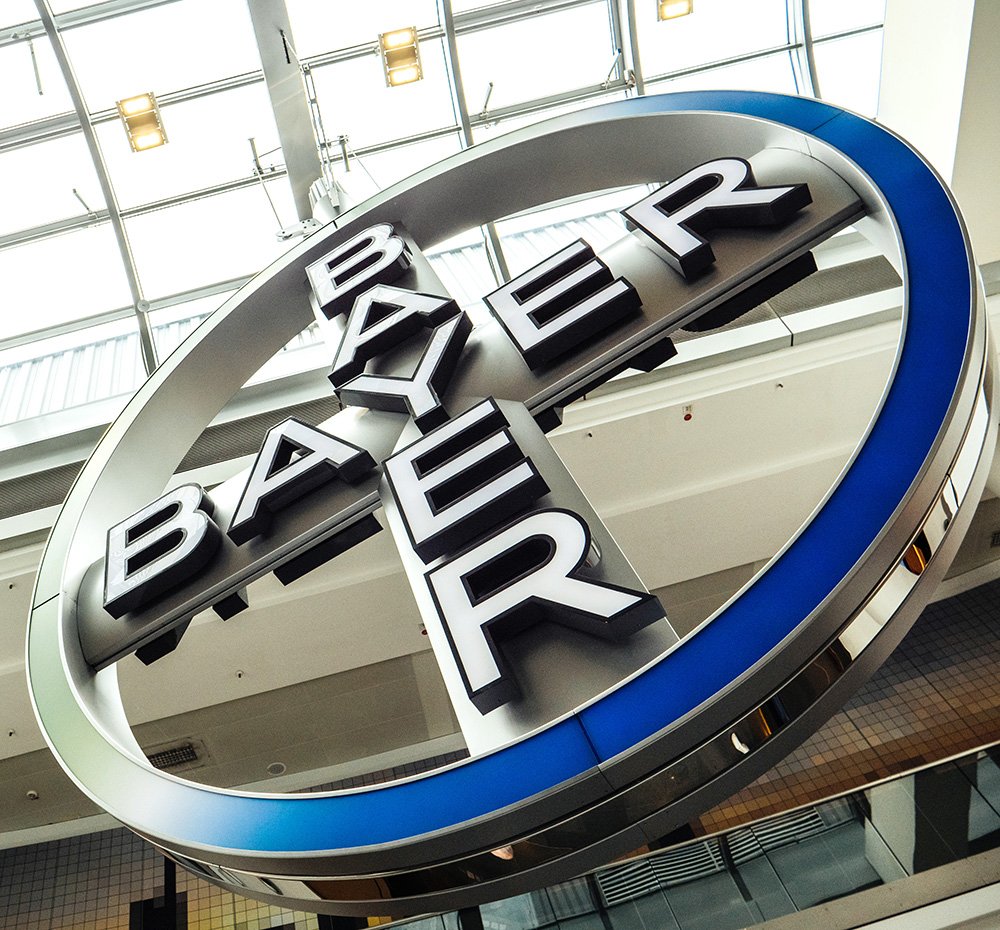BAYER AG –
Loss Recovery Action for Investors
TILP informs –
KEY FACTS AT A GLANCE:
The securities affected are initially Bayer AG shares: This also includes shares acquired by take up of rights from a capital increase of Bayer AG. In addition, claims also exist for shares resulting from mandatory convertible bonds issued by Bayer AG and for derivatives on Bayer AG shares.
Purchase from 14.09.2016 until 19.03.2019 (respectively included).
No. The only decisive factor for claiming damages is that the securities were purchased from September 14, 2016 until March 19, 2019.
Background to the investor lawsuits against Bayer AG
With an unprecedented purchase price of approximately US $63 billion, the Monsanto acquisition, announced on May 23, 2016 and completed by mid-2018, represents the largest corporate acquisition in German economic history to date.
The acquisition was absorbed ambivalently by the public. While proponents focused in particular on the economic advantages of the acquisition predicted by Bayer, other observers viewed the takeover critically and saw considerable risks for the Bayer Group.

The critics of the acquisition were ultimately to be proven right: When it became publicly on Aug. 10, 2018, that Monsanto had been ruled to pay $289 million in damages by a California court in connection with the glyphosate-based herbicide „Roundup,“ Bayer’s stock plunged rapidly. More than €10 billion in market capitalization was wiped out in the first few hours after the verdict became known.
When the capital-markets also became aware in August 2018 that Monsanto, or Bayer AG as its legal successor, is facing more than 8,000 additional, similar lawsuits in the United States, the share price plunged further. At its peak, Bayer shares lost more than 50 percent of their value during the legally relevant claims period. In total, more than 30 billion euros in market capitalization was thus wiped out in connection with the disclosure of the actual risks of the acquisition. Currently, the stock market value of the Bayer Group is between EUR 50 billion and EUR 60 billion, which is lower than the purchase price paid for the acquisition of the Monsanto Group.
As of April 14, 2020, Monsanto had been served with lawsuits from about 48,600 plaintiffs in the U.S., according to official Bayer data. However, the total number of lawsuits was far higher. Thus, on June 24, 2020, Bayer announced that it had reached a series of agreements to substantially settle Monsanto’s relevant litigation in the United States. Bayer put the total of all lawsuits filed and not (yet) filed at approximately 125,000, and in this context Bayer agreed to pay up to $10.9 billion to settle the cases already pending and possible future cases. By early November 2020, Bayer had reached a settlement agreement for approximately 88,500 lawsuits. However, a separate agreement to address and settle potential future lawsuits is still pending.
On January 7, 2021 Bayer finally announced that it had raised four billion euros by issuing a bond. According to Bayer, the proceeds will be used for general corporate purposes, including the refinancing of existing liabilities. According to media reports, the income will also be used to finance the legal risks assumed by Monsanto.
What does this mean for you as an investor?
For the affected investors, the events described in connection with the Monsanto acquisition imply substantial losses in the high double-digit billion range. After the actual risks of the takeover became known, around 55% of the shareholders present at the Annual Stockholders‘ Meeting of Bayer AG on April 26, 2019 voted against approving the actions of the Board of Management and thus withdrew their confidence in the Board of Management for 2018 – a unique event in the history of the DAX.
The investors represented by TILP accuse Bayer in particular of having informed the capital market incorrectly and not in a timely manner about the actual risks of the takeover. It is alleged that Bayer was informed of the numerous risks at an early stage in the Monsanto takeover proceedings, but failed to communicate these risks to the capital market as required by law, in particular in order not to endanger the planned takeover and the capital measures required in this connection. In particular, Bayer should have provided information about the reasonable likelihood that U.S. courts could conclude in Jury-trials that Roundup is carcinogenic.
Bayer itself states that it did not have full insight into the Monsanto Group’s books until August 2018 due to antitrust requirements, so that the risks arising from the U.S. glyphosate damages lawsuits, among others, could not have been assessed.
According to TILP`s firm legal opinion, even if this were to be assumed to be true, Bayer should have informed the capital market that it was not possible for Bayer to adequately assess the financial risk for Bayer resulting from the takeover and to take appropriate precautionary measures due to its lack of knowledge of all valuation bases in the course of the legal due diligence.
Also the fact that Bayer has already commissioned several expert opinions to prove that the Bayer Board of Management acted dutifully in its relationship with the company in connection with the Monsanto acquisition does not preclude Bayer’s liability to investors under capital market law. The question of whether the capital market should have been informed comprehensively about the existing risks of the takeover is completely independent of the question of whether the Bayer-Board has fulfilled its internal obligations to the company.
Investors who purchased Bayer shares, mandatory convertible bonds on these shares or derivatives on Bayer shares during the legally relevant damage period from September 14, 2016 until March 19, 2019 are, in TILP`s firm legal opinion, entitled to claim damages against Bayer AG due to the omitted or incorrect capital market information.
Your contacts at TILP:

Marc Schiefer, LL.M. (Miami)
| Fachanwalt für Bank- und Kapitalmarktrecht


Marvin Kewe
Fachanwalt für Bank- und Kapitalmarktrecht

